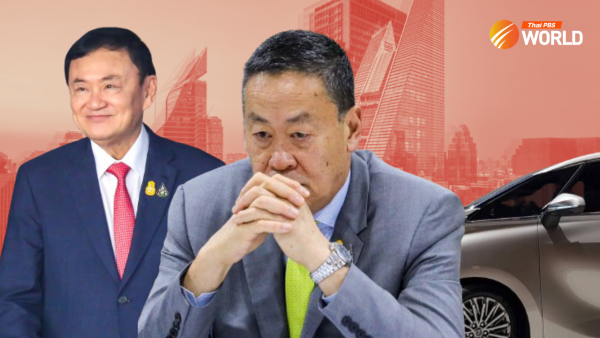Confusing picture of Thai protests

A moderate question to the increasingly splintered anti-establishment movement is where Panusaya “Rung” Sithijirawattanakul was on Sunday. A harder question is whether ideologies that clashed many times in the history of mankind can work hand in hand to put away some common enemies.
The former question might be slightly ominous, but it can be argued that it is normal for a large organization to have internal conflicts, and that “personal” issues can be put aside when push comes to shove.
The latter question, however, points at something profoundly troublesome.
The Free Youth network, operating under a slogan REDEM (Restart Democracy) which can turn to be its new name, had sparked a big controversy late last year that seemed to suggest a major ideological
disagreement with Khana Ratsadon people. Its RT (Restart Thailand) logo was red with the letters R and T styled to resemble the hammer and sickle, a symbol favoured by advocates of communism. Khana Ratsadon leader Parit Chiwarak was subsequently quick to denounce communism, and Free Youth’s virtual response to that was “What’s wrong with the system?”
Parit and other Khana Ratsadon do not say it out loud, but it is assumed that they prefer capitalistic democracy. This means they are against socialism in an extreme form, in which wealth is a lot more “equal” among the population and the state is strictly a provider, not facilitator. That the West obviously supports Khana Ratsadon makes it virtually impossible for the group to advocate communism or socialism.
“We thought Khana Ratsadon and Free Youth were indistinguishable. They are not,” said a pro-government broadcast commentator. The question now is whether their differences are reconcilable.
After its RT symbol came under criticism and skepticism left and right, Free Youth went on Facebook to denounce capitalism, which is generally associated with the United States, a democratic idol of many people. The network virtually said that communism is an antidote to capitalism, which was a “failure.”
“It’s not true that communism takes everything away from you. It doesn’t take the toothbrush from you, but only makes sure that toothbrush factories belong to the labour, not entrepreneurs,” Free Youth said in a statement, stressing that communism was better than dictatorship and has never been given enough time to prove its worth. It was a remark that did not touch upon one crucial point, though, which is that dictatorship, not democracy, seems much more comfortable with socialism or communism.
Can it be said that Free Youth would rather go along with China and Russia whereas Khana Ratsadon would prefer the United States and European Union?
That question arouses curiosity, but then problems with the “guards” make the whole thing look more puzzling. There are advocates of extremism and there are those who just wanted to protect other protesters and not provoke. Fighting over funds has also negatively impacted the images of all guards. This kind of situations allegedly prevails among both Khana Ratsadon and Free Youth vigilant forces.
Fierce verbal fighting among the guards through the social media has painted the entire anti-establishment movement in an unfavorable light, in addition to some other scandals that certain iconic figures still have to address. But, now, the most urgent question is whether and how Free Youth and Khana Ratsadon can get along.
Increasingly weak, violent and leaderless protests may be short-lived
Inspired by the ongoing anti-coup protests in Myanmar, and enraged by the indictment and detention of four protest leaders on lèse majesté charges, Thailand’s anti-establishment protests resumed after a pause since mid-December. Large-scale protests no more?
The question used to be asked in whispers, when FreeYouth and Khana Ratsadon were holding separate protests and their leaders were avoiding being seen together, but it has grown louder. Probably the toughest form of that question has been posted on a pro-government YouTube channel: What exactly is Free Youth fighting for _ socialistic equality in which everyone has the same soap, or democratic equality in which anyone can make a soap?
“This is not a fight for democracy as we know it,” the man said.’
He should not be surprised, though. Thai politics has been plagued with ironies, big and small. “Pro-democracy” uprisings in the 70s targeted capitalism and China was frowned upon by the powers-that-be. Current protests deplore what Beijing does, particularly when Hong Kong is concerned, and the United States, the model of “Anyone can get rich because he or she is free to invent, copyright and market anything” democracy, is held by many in the highest regard. Thai authorities, meanwhile, are appreciating China a lot more than in the past and view the West with much greater doubts than before.
Therefore, ironies exist on both sides of the national divide. A well-known journalist sympathetic with protesters has insisted that old-timers and youngsters alike are flip-flopping. “I’m seeing a lot of official remarks praising China and recommending Chinese books,” he said. “At the same time, when Thai kids discuss political ideologies (favored by China), they are described as insane.”
But the problem is that the old-timers do not want changes. The youngsters do. In other words, what the new generation ideologically believe matters more.
Now, the common enemies of the networks in the protest movement are the powers-that-be, so open, vociferous ideological conflicts among protesters cannot be expected. A portrait burning incident last Sunday might paper over serious disagreement within the entire movement. However, differences can become tumultuous in the future as history has shown that while political animals can bend the rules once in a while and come together, real ideologies compete to the very end and seek to
suppress one another.






